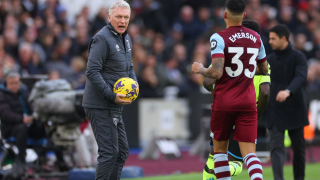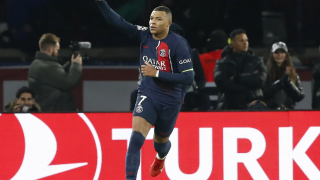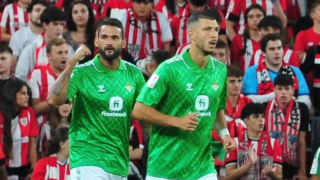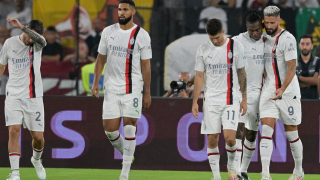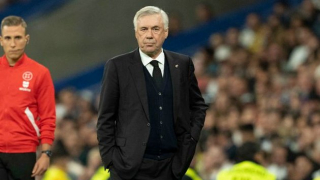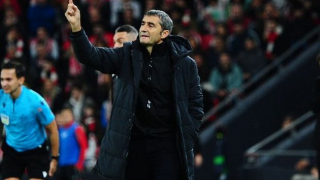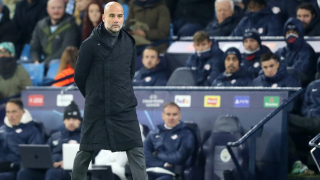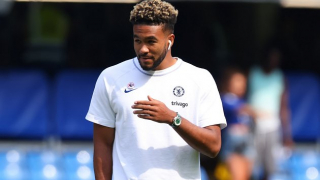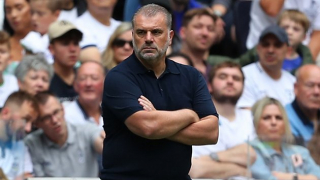This week, we explore the current controversy surrounding the Canadian Women's National Team and their national Association— Canada Soccer—in which the players staged a work stoppage that lasted for only one day while in training in Orlando ahead of the first game of the SheBelieves Cup against the U.S.
We then look at the results of the FIFA Intercontinental Playoffs for three last Women's World Cup Finals spots over the past week in New Zealand, with Haiti, Portugal, and Panama all advancing to the 2023 Women's World Cup Finals for the first time—a huge success for CONCACAF as their two sides both advanced, along with UEFA's sole representative from this inaugural FIFA Playoff tournament.
Next Week—in keeping with the CONCACAF theme, we will look at the almost 70 imports in Liga MX Femenil, which is phenomenal as this is just the second year that imports have been allowed into the league (other than their diaspora from other nations) and also present other news from this league that is rapidly becoming a major player among women's leagues around the world.
Canada Averts a Prolonged Strike, but the CSA's Reduction of Funding Could Have Some Detrimental Effects on the Women's National Team—This Year and in the Future
The Canadian Women's Nation Team had withdrawn from training for one game ahead of the SheBelieves Cup in the U.S. in mid-February—the annual Spring national team tournament that included the Americans (two-time reigning champions), Japan (Champions of Asia) and Brazil (Champions of South America)—to protest the severe lack of funding for the CWNT that Canada Soccer [formerly known but still referred frequently as the Canadian Soccer Association or CSA] has budgeted for 2023.
The players are particularly concerned with a lack of equity compared with the men's team, a significantly reduced investment from Canada Soccer in their budget for the women this WWC Finals year, including a reduction of training camp days in individual camps, the number of camps, the number of players and staff called in as well as a reduction in funding for their national youth teams moving forward. There will be no home friendlies for the Canadian Women this year—this is not exactly a rare thing, as Canada's WNT only held three internationals at home in 2022, a 2-2 tie in Victoria and a 2-0 win against Nigeria in April and a 0-0 tie with Korea Republic in June, after only two matches were held against New Zealand in Ottawa and Montreal in October of 2021 as part of the team's celebration of winning the Olympic Gold Medal earlier that summer; some years in the past Canada has had no home internationals and apparently that is the case again in 2023 and perhaps beyond because of Canada Soccer's funding cut-backs.
Keep in mind that this team are reigning Olympic Gold Medal Winners and among the top four-five favorites to make the Final of this summer's Women's World Cup in Australia/New Zealand. Canada Soccer, after a series of announcements about their efforts to secure equal pay between the women and the men's national teams—the latter made the 2022 men's World Cup Finals in Qatar for the first time since 1986 in Mexico and the nation will tri-host the men's Finals in 2026 with the American and Mexican Federations—threatened to sue the WNT players as they felt that they were staging an illegal strike. The players felt that they had no choice but to return to training.
Team captain and all-time goalscoring leader for internationals for women and men [190 goals in 319 games prior to the SheBelieves Cup] Christine Sinclair said on social media: "To be clear. We are being forced back to work for the short term. This is not over. We will continue to fight for everything we deserve and we will win. The SheBelieves Cup is being played in protest…. They told us that if we did not return to work—and did not commit today to playing in Thursday's game against the United States—they would not only take legal action to force us back to the pitch, but would consider taking steps to collect what could be millions of dollars in damages from our Players' Association and from each of the individual players currently in camp…. With the biggest tournament in women's football history [with an expanded 32 teams from 24 in 2019] less than six months away, our preparation for the World Cup and the future success of the women's national teams' program are being compromised by Canada Soccer's continued inability to support its national teams…We are tired, tired of constantly having to fight for fair and equal treatment, and for a program that will give us a chance to achieve what we know this team is capable of achieving for Canada."
The players have not received their pay for 2022 from Canada Soccer, so the national association had the upper hand. Canada Soccer responded through social media: "Canada Soccer was not prepared to jeopardize the SheBelieves Cup tournament, the preparation it would afford the women's national team for the upcoming World Cup, nor the experience it would afford countless fans who had undoubtedly travelled to Orlando to see their Olympic heroes." Not sure about the latter—maybe the word countless was used because there were too few to count.
For their part, the men's players were supportive of the women's case: "[Canada Soccer has] consistently refused or blatantly ignored our Players Association's requests for access to its financial records to back up its claims that it does not have the funds to properly operate Canada Soccer or fairly compensate the players."
Last summer, the men's national team refused to play a friendly against Panama and nearly forfeited a CONCACAF Nations League match against Curacao over a contract dispute. Plus, the CSA bizarrely had to cancel a men's friendly with Iran that was set for Vancouver, ignoring the fact that Iran's Islamic Revolutionary Guard Corps (IRGC) had shot down Ukrainian Airlines Flight PS752 in 2020 with 85 Canadians and permanent residents among the 176 passengers and crew members who lost their lives.
Canada Soccer did not foresee the backlash they would face from many citizens of Canada and the deceased's family members before originally scheduling the practice friendly. Of course, then the Iranian Football Federation wanted US$10 million in compensation for the postponement, which hindered their own national team's preparation for Qatar. It was just another bill for Canada Soccer to deal with.
Though the Canadian players ended up missing only one day of training, the concern is the rampant bad feelings between the CSA and the players, while fan sentiment [since the CSA brought up the issues of fans] will be squarely on the side of players in this issue. As stated above, the men's side had money disputes with Canada Soccer last year ahead of the Qatar World Cup. The women's side has had conflicts with Canada Soccer in the past—in 2006 team captain Charmaine Hooper famously delayed a commercial airplane from leaving Chicago while she tried to negotiate a move to play her club ball with Vancouver Whitecaps, who were effectively the Canadian national team in full-time training, a dispute which effectively ended her national team playing career.
Ultimately the women's players want the same support and resources that Canada Soccer spent on the men's team ahead of the Qatar finals. In 2021, Canada Soccer spent $11 million on the men' team and $5.1 million on the women. Sinclair pointed out that $2.5 million of that women's funding came from Own The Podium [a Canadian government funding mechanism for high performance sports], and not from Canada Soccer. Canada Soccer's total revenue for 2021 was $33.1 million while reported expenses were $28.1 million. Canada Soccer earned US$9 million for qualifying for Qatar 2022 plus US$1.5 million in expenses from FIFA to prepare for the soccer showcase.
This conflict is most worrisome for the future development of the sport in Canada and Sinclair has said that the players have been told that the team will not play after the WWC in July in Australia/New Zealand and the September of 2023 two-leg Olympic Games in Paris qualifying playoff with Jamaica.
On the day before Canada's first SheBelieves Cup game on February 16 in Orlando against the Americans, head coach Bev Priestman held a media call with 4-5 times the number of correspondents typically on her regular media sessions, with approximately two dozen media members on the conference call.
Priestman first talked about the current situation surrounding the team: "The group is forward facing. Yesterday for the first time felt [like] there is a game in two days and this group are a group of winners and competitors who want to get on that pitch and often, in the most trying circumstances, have shown that they can deliver. Now it's about how to beat the U.S., Brazil and Japan. That's my job really. I am failing the group if I don't have the group focused on it but I have had to be obviously considerate of the emotional state of the group." She later added: "As a coach, naturally, I want this resolved as quickly as it can [be]. I know that's what the CSA want and that's what the players want."
Priestman has always talked about the depth of young players in the Canadian national team's system, but, according to the CBC [Canadian Broadcasting Company], said even before the strike that: "I probably could have invited, budget allowing and everything, another 10 players into this [pre-tournament training camp] to be looked at... There's a whole lot of talent out there."
On the conference call, she later said that her role was not easy and by definition puts her in the middle: "With program cuts, I'm in a difficult position—I am representing a group of players and Canada Soccer and it's a really difficult time."
Priestman was quite disturbed that she had to talk long-time midfielder Sophie Schmidt out of retiring immediately from the national team because of the conflict. Schmidt has since said that she will wait until after this summer's Women's World Cup before retiring. Schmidt (34) has 218 caps for Canada, second only to Sinclair's 319. Priestman explained that her conversation with Sophia Schmidt: "was soul destroying to me. You talk about what Sophie has gone through [including being initially an alternate at the Tokyo Olympics Games Finals where Canada won the Gold Medal], but what I have seen from her is an incredible character and at times is the best trainer on this team on the pitch—the values and the respect that Sophie has shown in the most difficult circumstances is a culture in our journey and then to have Sophie talk about retirement, that as a coach working with players, was really, really difficult and I'm so thankful that that's been put on hold but that is the sort of emotional turmoil that is in there."
After having represented Canada at different youth levels, Schmidt made her senior debut in 2005. Schmidt appeared at four Women's World Cups and won three Olympic medals—a pair of bronze at London 2012 and Rio 2016 and gold at Tokyo 2020. Schmidt has scored 20 international goals. I remember interviewing her in China after she scored against Ghana in the First Round in the 2007 WWC Finals when she was still a teenager (19-years-old), and thought that Canada had a real star in the making; she has since been such an important component of this team that was so poor at the 2011 WWC Finals in Germany [primarily that was a coaching problem] and gone on to such successes afterwards. Schmidt has spent the past four seasons with the Houston Dash following three years in Germany with FFC Frankfurt (now Eintracht) and two with Sky Blue FC in the NWSL.
Another issue came up in the call with coach Priestman as the Guardian in the U.K. earlier that day wrote that she was being considered for club coaching jobs in England and she was asked: "With the Guardian report, you might be considering other coaching positions and if recent budget cuts might impact your decision with Canada Soccer moving forward."
She honestly replied that: "Post Gold Medal, there have been regular opportunities put in front of me but the biggest thing is, I'm committed to this group of players who I have shared some incredible moments with and I want those moments to continue. It is a really difficult circumstance—you can't hide from that but my aim is to be with this group of players and share more incredible moments."
Interestingly, Canada's men's coach John Herdman was linked to a move to New Zealand earlier this month to coach their men's national team—Herdman formerly coached Canada's and New Zealand's Women's National Teams in the past before taking the men's side to their first World Cup in 36 years in Qatar.
Canada Women's National Team Coach Head Coach Bev Priestman at a media press conference.
Photograph credit: Bradley Kanaris/Getty Images.
Regarding the SheBelieves Cup, Canada and the U.S. last met in June 2022 when the U.S. won 1-0 in the final of the CONCACAF W Championship in the Monterrey, Mexico area on a 78th-minute Alex Morgan penalty. That marked the first meeting between the two teams since Canada's 1-0 semifinal triumph at the Tokyo Olympics in August 2021. Canada's all-time record against the U.S. women is 4-7-52 (W-D-L) prior to the 2023 SheBelieves Cup. Priestman was without the injured Nichelle Prince (Houston Dash), Jayde Riviere (Manchester United in England), Deanne Rose (Rading FC in England) and Desiree Scott (Kansas City Current) for this tournament.
The roster for the SheBelieves Cup was as follows:
GK- Sabrina D'Angelo | ENG / Arsenal FC
GK- Lysianne Proulx | POR / SCU Torreense
GK- Kailen Sheridan | USA / San Diego Wave FC
CB- Kadeisha Buchanan | ENG / Chelsea FC
CB- Vanessa Gilles | FRA / FCF Olympique Lyonnais
CB- Shelina Zadorsky | ENG / Tottenham Hotspur
FB- Jade Rose | USA / Harvard University
FB- Gabrielle Carle | USA / Washington Spirit
FB- Allysha Chapman | USA / Houston Dash
FB- Ashley Lawrence | FRA / Paris Saint-Germain
M- Quinn | USA / OL Reign
M- Simi Awujo | USA / University of Southern California
M- Jessie Fleming | ENG / Chelsea FC
M- Julia Grosso | ITA / Juventus FC
M- Sophie Schmidt | USA / Houston Dash
M- Christine Sinclair | USA / Portland Thorns FC
F- Janine Beckie | USA / Portland Thorns FC
F- Jordyn Huitema | USA / OL Reign
F- Cloé Lacasse | POR / SL Benfica
F- Clarissa Larisey | SWE / BK Häcken FF
F- Adriana Leon | ENG / Manchester United FC
F- Evelyne Viens | SWE / Kristianstads DFF
F - Jenna Hellstrom | FRA / Dijon FCO
Training player:
FB - Sydney Collins | USA / NC Courage
Canada lost their first SheBelieves Cup game against the U.S. (2-0) on two goals by Mallory (Pugh) Swanson, but came back to defeat Brazil (2-0) in the second match, with goals by Vanessa Gilles in the first half and Evelyne Viens with about 20 minutes to go in Nashville. Canada fell in their final group match to Japan 3-0 in Frisco (Suburban Dallas) Texas. Canada finished fourth in the friendly tournament on goal difference as Brazil, Japan and the Canadians all earned 3 points, with the U.S. winning the tournament after winning all of their three matches.
Intercontinental Playoffs—Haiti, Paraguay and Panama Make This Summer's WWC Finals
Ten teams went to New Zealand for the first FIFA Intercontinental Playoffs to decide the last three teams to qualify for the 2023 Women's World Cup in Australia and New Zealand this summer. These teams were sides that missed out on the automatic playoff spots in CONMEBOL, CONCACAF, CAF and the AFC—or fell short through UEFA's playoffs after the automatic qualifiers were determined or because New Zealand—from the Oceania Football Confederation—is a co-host this summer. We analyze the three groups and give a final verdict on a tournament that had some entertaining and dramatic games, but very few fans.
Group A
Cameroon and Thailand faced off in the first round on February 18 in Hamilton. Second-half substitute Gabrielle Onguene of CSKA Moscow, who turns 34 just after the tournament, scored two goals within two minutes around the 80-minute mark to break open up a close game and send Cameroon onto the final Group A match against a very difficult opponent in European side Portugal. Onguene had come on the pitch five minutes before she scored her first goal. Thailand had the advantage in the first 15 minutes but Cameroon largely had control of the game from that point on, with Cameroon's Jeanette Yango (29)—who now is with Olympique Marselle in the French second division after five years in the top league with Fleury 91, Guingamp and Yzeure Allier—in scintillating form in attack throughout the match. Unfortunately, Cameroon's goalkeeper Ange Bawou (23) of Bayelsa Queens of Nigeria was red-carded late in extra time for touching the ball with her hand outside the box and would miss the final. The game attracted 1,021 spectators in Hamilton, but it appeared that two-thirds of them came dressed as empty seats—which has been a pretty common sight throughout this tournament. Portugal, which had a first round bye, warmed up for the tournament with a confidence-boosting 5-0 dispatching of New Zealand in Hamiton before a much larger crowd of 3,788 fans.
If Cameroon was able to upset Portugal, it would be their third consecutive WWC Finals and a chance to also make the Knockout Stages for the third consecutive time. The question ahead of the Group A Final was if Cameroon would play like the side that delighted everyone in 2015 in Canada or the cynical side of France 2019 that was so poor in the crucial last group game against New Zealand, when neither side seemed to want to seize a victory that would advance them to the Group Stage, and even England Coach Phil Neville (now at Inter Miami of MLS) blistered them for their play after their Round of 16 battle royale that England won 3-0.
In the Final between Portugal and Cameroon on February 22, in front of another small crowd of 1,132, Diana Gomes (24) of Sevilla scored in the 22nd minute and the lone European representative to the Intercontinental Playoff tournament held onto the narrow lead until the 89th minute, when Ajara Nchout Njoya (30, who is at her second season with Inter Milan in Italy and has 10 goals in 35 matches during that time) deadlocked the game in the 89th minute. Carole da Silva Costa (32) of Benfica scored from the penalty spot in the fourth minute of injury time to give Portugal the win and their first ever WWC berth this summer. Estelle Johnson (34)—who was born in Cameroon but raised in the U.S. and played the last four seasons with Gotham FC but was a free agent and signed with the North Carolina Courage for the 2023 and 2024 seasons—was adjudged through VAR to have handled the ball—albeit unintentionally—when she made a superb block of a late Portugal attack deep in her own box. Portugal had 21 shots in total to 7 for Cameroon (5 vs 3 for shots on goal). During the game Portugal twice hit the crossbar on shots.
Portugal will play this summer in Group E in New Zealand along with the two-time reigning champions United States, the 2019 Finalists Netherlands and Vietnam.
Group B
In the first-round match on February 18 in Auckland, Senegal met Haiti. Haitian defender Kethna Louis (26), who has played at Stade de Reims in France for the past two seasons after a year at Le Havre, scored the first goal just before halftime. Ten minutes into the second half, Haiti's captain Nerilia Mondesir (24)—who has been with Montpellier in France for seven years—scored in the 54th minute with five Haitians in front of goal and no Senegalese defender facing them, except for their goalkeeper. By the 65th minute it was 4-0 for Haiti as Roselord Borgella (29), who joined Dijon this year after two years at Issy in France, scored twice within a minute from her speed and her ability to hold off her defenders. Borgella played in the States with FC Indiana in the WPSL Elite and WPSL, Boston Breakers Reserve side, FC Suwon in Korea Republic, Santiago Morning in Chile, Maccabi Kishronot Hadera FC in Israel and then she moved to France with Issy in 2020.
Haiti were fluid and dangerous, particularly in the second half following a very physical first half, with Senegal earning seven yellow cards during the match. The much-maligned goalkeeper Kerly Theus (24) of the USL's W-League —according to a number of Haitian media followers in the Caribbean and in North America—was impressive in gaining the shutout; she has also played with Santiago Morning in Chile. The game was played in front of a small crowd in Auckland of 925. The Chilean team was watching the game and one player was seen engrossed in a thick book during the match. That probably was not the best pre-match preparation for facing a Haitian team with a large portion of their squad playing professionally in France and who can definitely score, particularly since, in a friendly match since they had a first round bye, Chile lost 4-0 versus Argentina the day before. A lot of the media was focused on how young Haiti's squad was, since only one of the 23 players was over the age of 25, and Haiti brought 11 teenagers. Chile was warned about the potency of Haiti's attack.
In the Final between Haiti vs. Chile on February 22, Melchie Dumoney (19) of Reims scored just into first half injury time from a difficult angle near the touchline to give Haiti the lead. After Mondesir had a penalty kick saved late in the game, Dumoney scored a second brilliant goal past second year Olympique Lyon goalkeeper Christiane Endler (31) in front of yet another small crowd of 1,157 in Auckland. Chile made it interesting as Melbourne City's Maria Rojas scored late after Theus flapped at a cross but the Haitians held on for a historic victory and their first ever Women's World Cup Finals. We say congratulations to Ayiti.
This is proud day for the Haitian women's program, which hosted the first CONCACAF Women's World Cup Qualifiers ahead of the 1991 Women's World Championship in China [now Women's World Cup]. Before the 2015 Women's World Cup Finals, at the CONCACAF finals, this reporter was encamped with the Haitian team at one point and, though they battled gallantly, were overmatched, scoring 1 goal (in a 1-0 win over Guatemala, but allowing 7 in losses to the U.S. (6-0) and Trinidad and Tobago (1-0). For the 2019 Finals, they did not even make the CONCACAF 8 team Finals, being pipped by Jamaica—who ultimately qualified—on goal differential. The results in such a short time for Haiti are phenomenal.
We must touch on the continuing conflict over former Haitian Football Federation President Yves Jean-Bart, who was banned by FIFA for a continuing pattern of player abuse for years, but he petitioned the ruling and had it overturned by the Court of Arbitration for Sport. Hopefully with the focus of the nation and the world firmly on this exciting and successful team, Jean-Bart will be banished from any association with football or this triumphant team.
FIFA has documented in a legal report his continued abuse of women players, including underage girls, and in at least one case he forced a player to have an abortion. He was also charged with preventing players from going abroad for university scholarships and professional playing opportunities by personally holding onto their passports. Hopefully a ground-swell of indignation will allow the program to start with a clean slate, as we have been seeing with the recent abuse cases in the NWSL.
Les Grenadieres are in Group D for matches in Australia against reigning Women's EURO champions England, reigning Asian Champions China and Denmark. Though Group D is difficult, Haiti should not be underestimated as they can score. In 2018 at the U-20 WWC Finals in France, the core of this same side gave a very good account of themselves in losing all three games by a single goal to China (2-1), Nigeria (1-0) and Germany (3-2), with Mondesir scoring both against the latter. This qualification will be viewed by many in the same light as when the men's side qualified for the 1974 World Cup in Germany, led by forward Manu Sanon, who later played in the U.S. in the NASL.
Group C
This group had two first round matches, with the winners meeting in the Group Final for a spot in the Women's World Cup Finals. Chinese Taipei faced Paraguay on February 19 in Hamilton in front of an announced crowd of 804, which appeared very generous. Chinese Taipei took an early lead then doubled it by the 75th minute with both teams struggling with their passing at times. Captain Lai Li-Chin of Taichung Blue Whale opened the scoring after 20 minutes. With about 15 minutes left, Su Sin-Yun Hualien FC scored a second. Then the fireworks went off on the field for Paraguay as first Dulce Quintana (Racing Power FC in Portugal) scored and then Lice Chamorro (Deportivo Alaves of Spain) scored within a minute of each other with only 10 minutes left in the game.
Paraguayan goalkeeper Alicia Bobadilla (28), who played with San Lorenzo in Argentina and is now with Palmeiras of Sao Paulo, Brazil, was playing more as a sweeper and Chinese Taipei—who played at the initial 12 team FIFA World Championship [now Women's World Cup] in China in 1991—took advantage of Bobadilla's high positioning with some breakaways but did not score on them, particularly very late in the game. The 2-2 scoreline remained after the 90 minutes were completed along with a generous amount of extra time (15 minutes). Ten minutes into the first overtime period, Fatima Acosta (CS Limpeno of Paraguay) scored a brilliant goal after a long break out of defense but it was marginally offsides and waived off. Just into the 120th minute, the referee called for a penalty kick after a CT player passed the ball but was taken down on the edge of the area.
Even though Chinese Taipei had a shot on the play and advantage should have been played, VAR ruled that it was a penalty. Pao Hsin-Hsuan—currently a free agent—skied the potential match winner over the cross bar. Paraguay was down to 10 players near the end of the 120 minutes because of severe leg cramps, even though play was continued with another Chinese Taipei player shooting wide. With the extra time added, the two teams played around a total of 145 minutes before the penalty kick session. Paraguay ended up winning the penalty shootout as one Chinese Taipei player missed the goal and Pao Hsin-Hsuan missed again from the spot for the final attempt—not once but twice—as Bobadilla jumped early off her line on the initial save, but then save the second attempt as well. Bobadilla, who hurt her right hand late in the game as was noticeably favoring it, was named Player of the Match while Pao Hsin-Hsuan laid on the field and was inconsolable afterwards.
The FIFA TV+ announcer from New Zealand said that: "It was a dramatic afternoon" and that the contest was: "enthralling." It truly was amazing to see the game live on FIFA TV+.
Oceania's Papua New Guinea faced Panama on February 19 in Auckland in front of 746 primarily PNG fans. In the twelfth minute, Marta Cox gave Panama a 1-0 lead on a wonderful bicycle kick goal. Just after the hour mark, Substitute Riley Tanner (Washington Spirit) settled the match after a mazy, dribbling run from outside the penalty area began on the right side of goal before finding herself on the left side of goal and then burying her cross-shot ball into the far corner. She had earlier hit the post and was a huge factor as a second half substitute for the final half-hour. Yenith Bailey in goal shut down attacks and posted the shutout. Panama had 35 shots on goal to 9 for PNG (15 vs. 6 on target). Panama has failed to score only in two of their last 16 matches. For more on Tanner and the other Panamanian players, see last week's tournament preview: (The Week in Women's Football: WC Playoffs; Riley explains Panama choice; PNG appoint ex-Man City defender Prior - Tribal Football). Papua New Guinea gave a good account of themselves and lost for only the third time in their last 16 matches.
In the Group Final on February 23, Panama faced Paraguay, which was the second CONCACAF vs. CONMEBOL final of the tournament (See Haiti versus Chile above). Lineth Cedeno (22)—who played last season with Verona in Italy and had 5 goals in 15 matches and is now with Sampdoria this season—scored the only goal of the game in the 75th minute, in front of only 476 fans in Hamilton. Panama will debut at the Women's World Cup Finals this summer in Group F in Australia versus France, Brazil and…familiar regional foe Jamaica, though they have not played each other since a May 2019 friendly when Jamaica won 3-1 in Kingston. Competitively, Panama lost on penalties after a 2-2 tie at the CONCACAF Regional qualifiers—Jamaica went on to their first finals in France while Panama fell to Argentina in the Intercontinental Playoff (5-1 on aggregate across two legs).
In the 7th-10th place matches between first round defeated sies—we don't know what really to call these matches other than two of the most unimportant pair of games ever conceived—Thailand and Senegal tied 1-1 while Chinese Taipei blasted Papua New Guinea 5-0. Though it gave each participant a second game, after the devastating loss for each side, it didn't seem to make sense
In two friendlies during the tournament, Argentina defeated New Zealand 2-0 on February 20 in Hamilton in front of 3,622 fans, and then by a 1-0 score three days later in Auckland in front of 3,914 fans.
My view on the Intercontinental Playoffs
I have been clear since last summer that I was skeptical of this tournament because I found it too big, had too many teams traveling too far— with three making the WWC only months before the Finals kickoff and only a few FIFA international windows left for their preparation time—and very few fans of each team in New Zealand. One thing that can't be argued is that the games were special. Haiti's first round 4-0 win over Senegal was the only game with a significant margin but it still was quite interesting to watch. Chinese Taipei and Paraguay was tremendously unpredictable and dramatic but the atmosphere was limited (with gates ranging from just under 500 to just over 1,100 in Auckland and Hamilton). The tiny attendance turnout is probably a key reason why this Intercontinental Finals format in a neutral country should be ditched.
By all means, continue with Inter-Confederation Playoffs but, as was done in the past between CONCACAF and CONMEBOL on the women's side and with a few more on the men's side, hold them on a home and away basis so fans can attend and enjoy the drama in person. I actually covered a men's Intercontinental Final in New Zealand for the second leg versus Bahrain for a last spot at the 2010 World Cup in South Africa (this was one of two playoffs, with Costa Rica facing Uruguay). After a first leg scoreless tie in Bahrain, Wellington hosted the second leg in front of a sold-out Cake Tin stadium crowd and beyond-capacity press box. New Zealand won 1-0 and survived a missed penalty kick by Bahrain to qualify for their second ever World Cup in 2010. The game, the interviews with coaches and players afterwards, and the party scene throughout downtown Wellington was hugely memorably and helped elevate the sport in the country. The women's game deserves the same opportunity to impact participant countries with these sorts of dramatic home games.
If this tournament is indeed a one off, we will remember that CONCACAF bested CONMEBOL teams twice in two of the three finals—both decided by one goal and tense until the end—with UEFA's Portugal advancing ahead of CAF's Cameroon in the other.
The final few minutes and injury time of the Haiti-Chile match was pretty much 'breaking in a new ulcer time for me' but the drama of all the Final matches was riveting—I just think that we could have gotten there more parsimoniously and efficiently, with home fans across two legs. The tournament was good for UEFA and excellent for CONCACAF as they now have six sides (U.S., Canada, Jamaica and Costa Rica, along with Haiti and Panama) at the WWC Finals—with two from the Caribbean and two from Central America. That should help CONCACAF's rankings and view globally so all credit to Panama and Haiti for qualifying in extremely tense and stressful playoff format—half a world away from their homes.
We also felt that Oceania's Papua New Guinea did well against Panama, falling only by a 2-0 scoreline, which is a boost to the region, though their 5-0 loss to Chinese Taipei in the match between first round defeated sides was sizeable, but how much stock can we put in a match that was added after the original schedule, with both teams disappointed in missing out on a WWC spot?
New Zealand lost all three exhibition games by an 8-0 margin, by 5-0 to Portugal and 2-0 and 1-0 to Argentina, which is not a good sign for them ahead of next summer. Argentina won all three games, including a 4-0 win over Chile, and their inclusion is a benefit to them in their preparation and getting familiar with New Zealand ahead of the finals.
As one player on Argentina told me just before the tournament, "It did seem odd that we are going so far to play Chile," [their South American neighbor, rather than Portugal]. We do wonder how much FIFA, New Zealand Football and the ten Football Associations spent on expenses for the Tournament—it had to be quite sizeable just in travel costs alone.
Tim Grainey is a contributor to Tribal Football. His latest book Beyond Bend it Like Beckham is on the global game of women's football. Get your copy today.
Follow Tim on Twitter: @TimGrainey


